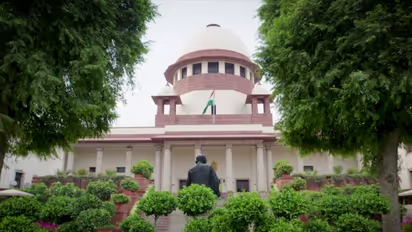SC's latest ruling breaks ground on SC/ST sub-classification, overturning previous verdict

Synopsis
The seven-judge constitution bench, led by Chief Justice DY Chandrachud and comprising Justices BR Gavai, Vikram Nath, Bela M. Trivedi, Pankaj Mithal, Manoj Misra, and Satish Chandra Sharma, delivered a 6:1 majority decision.
The Supreme Court on Thursday (August 1) declared that sub-classification within the Scheduled Castes (SC) and Scheduled Tribes (ST) is permissible. This judgment overturns the 2004 verdict in EV Chinnaiah vs State of Andhra Pradesh, where a five-judge bench had previously ruled against sub-classification, asserting that SC/ST communities should be treated as homogenous groups.
The seven-judge constitution bench, led by Chief Justice DY Chandrachud and comprising Justices BR Gavai, Vikram Nath, Bela M. Trivedi, Pankaj Mithal, Manoj Misra, and Satish Chandra Sharma, delivered a 6:1 majority decision. The court ruled that states can implement sub-classifications within SCs and STs to allocate quotas to the most backward segments within these groups.
Himachal Pradesh cloudbursts: 3 dead, 36 missing in Rampur and Mandi; rescue ops underway (WATCH)
The Supreme Court's decision came as part of its review of the constitutional validity of Section 4(5) of the Punjab Act. The core issue was whether sub-classifications within SC/ST communities were permissible or whether these groups should be viewed as uniform entities.
During the hearings, the Court evaluated whether children from more advantaged sub-groups within SC/ST communities should continue to benefit from reservations. The Justices considered the concept of homogeneity within these categories, particularly in light of the disparities where economically better-off segments within SC/ST communities have disproportionately benefitted from reservations, leaving the most disadvantaged members marginalized.
The Union government expressed support for the sub-classifications, stressing the need to provide additional reservation benefits to the most underprivileged members of these communities. The majority verdict stressed that states must justify sub-classifications with "quantifiable and demonstrable data" rather than acting on arbitrary decisions.
New Karnataka traffic rule: FIR awaits to those driving over THIS speed limit
Chief Justice Chandrachud, who wrote the main judgment, was supported by Justice Misra, while Justice Trivedi dissented. Four other judges issued concurring judgments, reflecting a complex legal and social landscape surrounding reservation policies.
Stay updated with the Breaking News Today and Latest News from across India and around the world. Get real-time updates, in-depth analysis, and comprehensive coverage of India News, World News, Indian Defence News, Kerala News, and Karnataka News. From politics to current affairs, follow every major story as it unfolds. Get real-time updates from IMD on major cities weather forecasts, including Rain alerts, Cyclone warnings, and temperature trends. Download the Asianet News Official App from the Android Play Store and iPhone App Store for accurate and timely news updates anytime, anywhere.